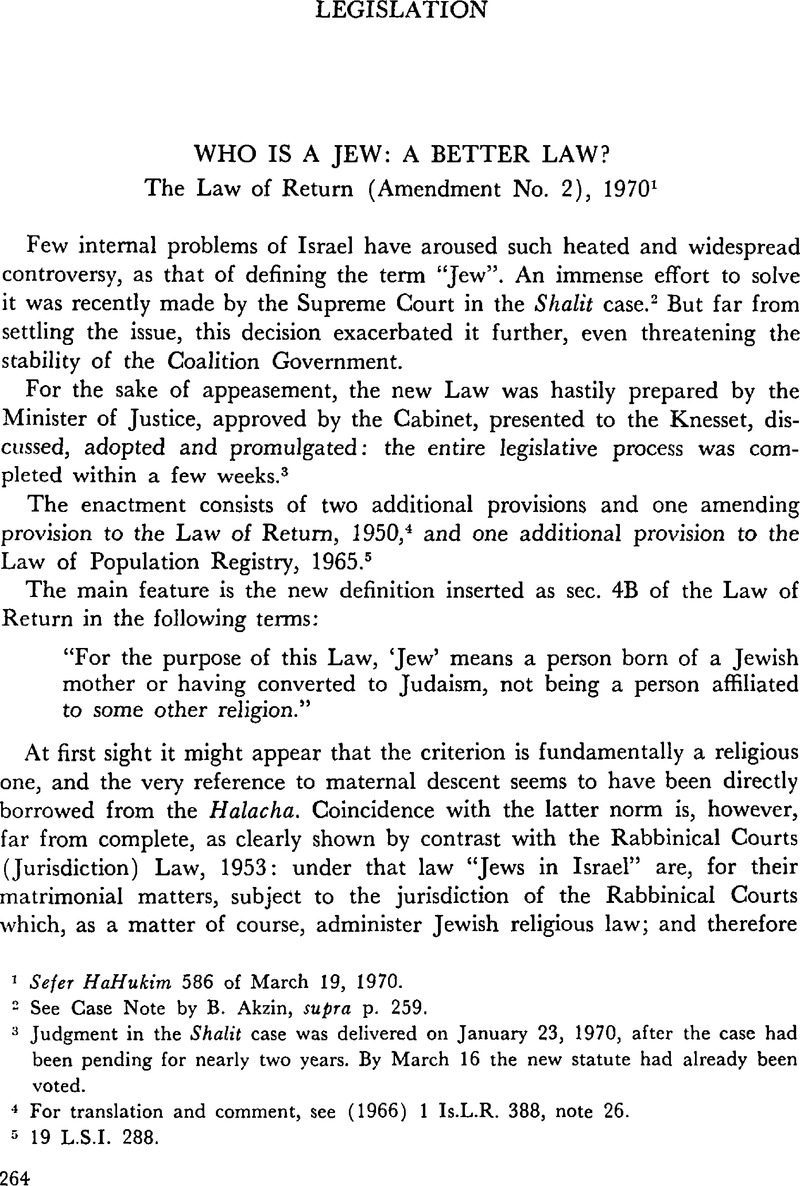Article contents
Who is a Jew: A Better Law?
Published online by Cambridge University Press: 12 February 2016
Abstract

- Type
- Legislation
- Information
- Copyright
- Copyright © Cambridge University Press and The Faculty of Law, The Hebrew University of Jerusalem 1970
References
1 Sefer HaHukim 586 of March 19, 1970.
2 See Case Note by Akzin, B., supra p. 259.Google Scholar
3 Judgment in the Shalit case was delivered on January 23, 1970, after the case had been pending for nearly two years. By March 16 the new statute had already been voted.
4 For translation and comment, see (1966) 1 Is.L.R. 388, note 26.
5 19 L.S.I. 288.
6 Cf. supra, p. 264, note 5.
7 To test this point a petition has already been filed in the High Court.
8 See supra, p. 262. On this point sec. 3A now provides that “no person shall be registered as of Jewish nationality or religion if any statement under this Law or other entry in the register or public document shows that he is not a Jew, unless such statement, ruling or document—as aforesaid—is contradicted to the satisfaction of the Chief Registration Officer or unless it has otherwise been decided by a declaratory judgment of the competent court or tribunal”.
9 Rubinstein, , “Law and Religion in Israel”, (1967) 2 Is.L.R. 380, 413.Google Scholar A statute was recently enacted to make provision for the annulment of mixed marriages Sefer HaHukim 573 of July 27, 1969).
10 The only restriction is, for a Jew, to have voluntarily converted to some other faith (sec. 4A(a)). This is apparently a reminiscence of the Rufeisen or “Father Daniel” case (1962) (IV) 16 P.D. 2428.
11 Akzin, , “Codification in a New State”, (1956) 5 Am. J.Comp. L. 44, at 75.CrossRefGoogle Scholar
12 During the parliamentary debates demands and promises were made to facilitate and accelerate conversion proceedings in the rabbinical courts; but even if progress were made in this respect—of which there have been no signs as yet—it will probably be inopportune, when the occasion arises, to require return to Judaism as a condition precedent to return to Israel.
- 5
- Cited by


